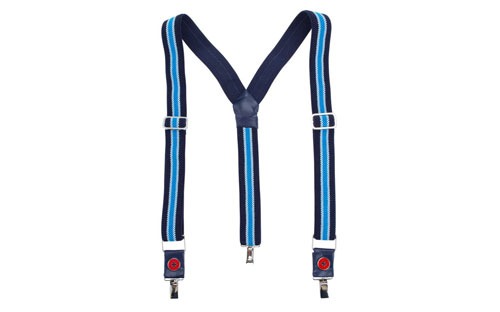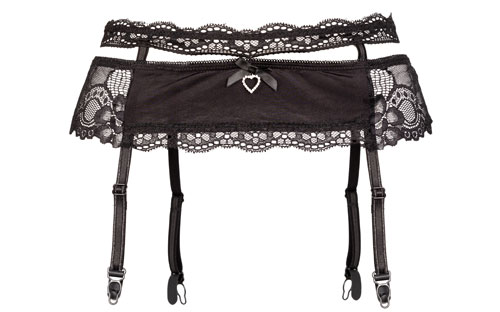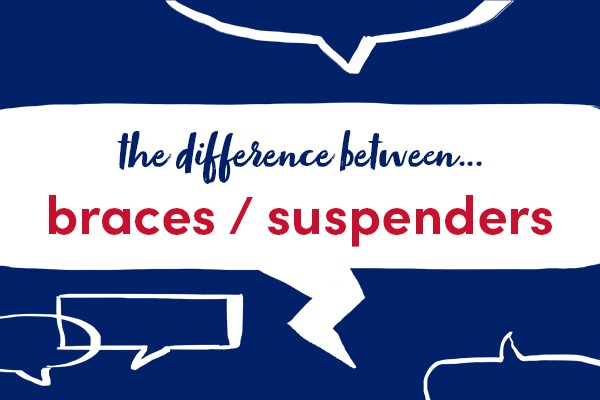This week we are looking at some words that are used differently in British and American English: braces and suspenders.
braces

In British English, braces can refer to a pair of straps worn over the shoulders for holding up the trousers.
He also wore a pair of colourful braces.
In American English, braces or curly braces are a pair of written marks that you place around words, numbers, or parts of a computer code, for example to indicate that they are connected in some way or are separate from other parts of the writing or code. In British English, these are known as curly brackets.
You can also use braces in both British and American English to talk about a metal device that can be fastened to a child’s teeth in order to help them grow straight.
Why don’t you get braces to straighten up your teeth?
suspenders

In British English, suspenders are a piece of underwear used for holding up stockings.
This is also known as a suspender belt in British English, or a garter belt in American English.
In American English, suspenders is the word used for a pair of straps worn over the shoulders for holding up the trousers.
Both braces and suspenders are plural nouns. You use a plural form of a verb with them.
The braces were red with silver clips.
You can also talk about ‘a pair of braces or ‘a pair of suspenders’. You use a singular form of a verb with these expressions
A pair of suspenders is almost obligatory with a checked shirt.
This blogpost is based on Collins COBUILD English Usage, written for learners of English. For more examples of English usage points, please visit: https://grammar.collinsdictionary.com/english-usage.
All opinions expressed on this blog are those of the individual writers, and do not necessarily reflect the opinions or policies of Collins, or its parent company, HarperCollins.



